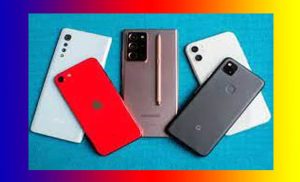Mobile App Development
Mobile App Development
Introduction:
Mobile App Development is a dynamic and rapidly evolving field that involves the creation of applications specifically designed to run on mobile devices. This essay explores the foundational concepts of mobile app development, its key components, methodologies, challenges, and the transformative impact it has on our digital interactions.
Defining Mobile App Development:
Mobile App Development is the process of designing and building software applications for mobile devices, such as smartphones and tablets. These applications, commonly known as mobile apps, are developed to run on operating systems like iOS or Android and cater to diverse user needs.
Key Components of Mobile App Development:
User Interface (UI) Design: The visual elements and interactive features that users interact with, creating a seamless and intuitive experience.
Backend Development: The server-side of the application that manages data storage, processing, and communication with the frontend.
Development Methodologies:
Waterfall Model: A linear and sequential approach to development where each phase must be completed before moving on to the next.
Agile Methodology: An iterative and flexible approach that emphasizes collaboration, adaptability, and continuous delivery of small, functional comp
Types of Mobile Apps:
Native Apps: Developed for a specific platform (iOS or Android) using platform-specific programming languages (Swift for iOS, Java/Kotlin for Android).
Web Apps: Accessible through a web browser, these apps are not installed on the device but run on the server.
Challenges in Mobile App Development:
Device Fragmentation: The diversity of devices, screen sizes, and resolutions across the mobile landscape poses challenges for ensuring consistent user experiences.
Security Concerns: Mobile apps often handle sensitive data, requiring robust security measures to protect user information.
User Experience (UX): Designing an app that is both visually appealing and user-friendly is a continuous challenge, considering diverse user preferences and expectations.
Emerging Technologies in M A D:
Augmented Reality (AR): Integrating digital information with the real-world environment, enhancing user experiences in areas like gaming and navigation.
Internet of Things (IoT): Connecting mobile apps with IoT devices, enabling users to control and monitor smart devices through their mobile devices.
The Future of M A D:
The future of mobile app development involves advancements in artificial intelligence, machine learning, and the integration of immersive technologies. As mobile devices become more powerful, app experiences will continue to evolve, offering users new levels of personalization and interactivity.
Conclusion:
Mobile App Development is not just about coding; it is a creative process that shapes our digital interactions. As we navigate the ever-changing landscape of mobile app development, addressing challenges, embracing new technologies, and prioritizing user-centric design will be pivotal. In the palms of our hands, mobile apps stand as gateways to a future where digital experiences are not just functional but delightful, catering to the diverse needs and preferences of users worldwide. 0 0 0.
N.B. The article entitled originally belongs to the book ‘Select Essays on Technology‘ by Menonim Menonimus.
You May Like:
Additional Searches:
- Essay on Technology
- Technology Essay
- Digital Technology
- Introduction to Mobile Application Development











